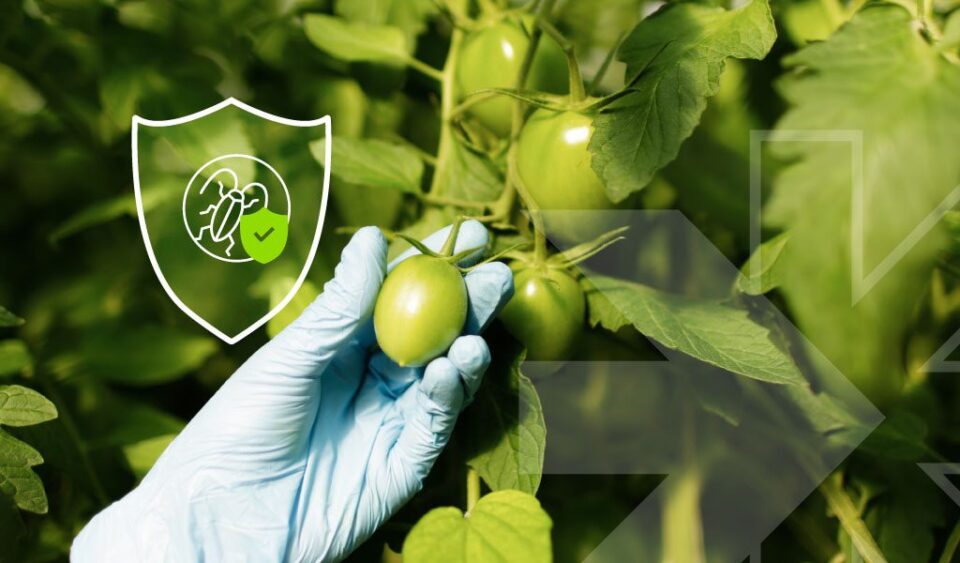Understanding Integrated Pest Management (IPM)
Integrated Pest Management (IPM) is a holistic approach to pest control that combines various strategies to effectively, economically, and environmentally manage pest populations. This method emphasizes long-term prevention through biological, cultural, physical, and chemical techniques.
Key Strategies for Effective IPM
– Biological Control: This involves using natural predators, parasites, and pathogens to manage pest populations, reducing the need for chemical pesticides and promoting a balanced ecosystem.
– Cultural Practices: Implementing methods like crop rotation, intercropping, and maintaining proper sanitation to limit pest habitats and disrupt their life cycles.
– Physical Control: Utilizing physical barriers, traps, and manual removal of pests. This includes nets, mulches, and other materials to prevent pest access to crops.
– Chemical Control: When necessary, applying targeted and environmentally friendly pesticides that minimize harm to non-target organisms and mitigate the risk of resistance.
Advantages of Integrated Pest Management
1. Environmental Protection: IPM minimizes chemical pesticide use, reducing pollution and protecting beneficial species, wildlife, and aquatic ecosystems.
2. Reduced Pest Resistance: The diverse strategies employed in IPM help prevent the development of pest resistance, ensuring long-term efficacy and ecological balance.
3. Economic Efficiency: By prioritizing prevention and employing various control methods, IPM can lower overall pest management costs, helping farmers avoid the expenses associated with pesticide resistance and pest resurgence.
4. Sustainable Agriculture: IPM promotes practices that enhance soil health, biodiversity, and ecosystem resilience, supporting long-term agricultural productivity and food security.
5. Human Health: Reducing reliance on chemical pesticides minimizes exposure risks for farmers, farm workers, and consumers, leading to safer food production and healthier communities.
6. Improved Crop Quality: Effective and sustainable pest management helps maintain high crop quality and yield, ensuring a reliable supply of quality produce.
Recent Advances in IPM: Insights from the British Council and European Commission
Recent developments in IPM reflect a global shift toward more sustainable agricultural practices, as highlighted by the British Council and the European Commission.
– British Council: They advocate for a new IPM paradigm that integrates modern agricultural technologies and sustainability principles, emphasizing research and outreach while considering human, environmental, and economic factors in food production.
– European Commission: The Commission has promoted IPM through initiatives like a comprehensive database showcasing around 1,300 IPM practices and techniques, aimed at guiding national authorities and farm advisors in tailoring IPM approaches to local conditions. This aligns with the Sustainable Use of Pesticides Directive and the European Green Deal, emphasizing crop rotation, balanced fertilization, and non-chemical pest control methods.
Rovensa Next’s IPM Strategy
At Rovensa Next, our IPM strategy emphasizes the use of natural-origin biochemical compounds to deter and manage pest populations. Our effective biocontrol solutions are environmentally friendly, leaving minimal residues on crops and targeting common pests such as aphids, mites, and whiteflies.
Our skilled technical team is instrumental in implementing these IPM strategies. They develop safe and effective biocontrol solutions and provide expert guidance to farmers to optimize IPM practices, ensuring sustainable pest management from seed to harvest for healthy and productive crops.
Biocontrol Solutions Offered by Rovensa Next
We provide a variety of biocontrol solutions tailored to the specific needs of growers, all developed with natural-origin biochemical compounds:
– Prev-Am: A bioinsecticide, bioacaricide, and biofungicide offering immediate action against various pests.
– Santem: An all-natural pyrethrin blend effective against a wide range of insects.
– Tecbom: A natural insecticide targeting whiteflies.
– Tec-fort: A long-lasting natural pyrethrin-based bioinsecticide.
– Portento: A biofungicide based on a new Bacillus subtilis strain for preventive and curative effects on various fungal diseases.
– Milagrum Plus: A biological fungicide with preventive and curative action against mildew.
– Ospovi: A biofungicide for preventing and curing powdery mildew on deciduous fruit trees.
– Naturdai Mim: A natural fungicide for controlling various molds and damping off diseases.
Our solutions integrate seamlessly into existing pest management programs, empowering growers to manage pests sustainably from seed to shelf.
Commitment to Sustainability
Rovensa Next’s Integrated Pest Management exemplifies the future of sustainable agriculture. By leveraging natural biocontrol solutions and staying informed on the latest IPM advancements, we contribute to a more resilient and environmentally friendly agricultural sector. The insights from the British Council and European Commission further underscore the importance of adopting innovative approaches to pest management, ensuring a sustainable and productive future for global agriculture.
At Rovensa Next, we are dedicated to advancing sustainable agriculture through innovative IPM solutions that enhance crop health, improve yields, and protect the environment.


